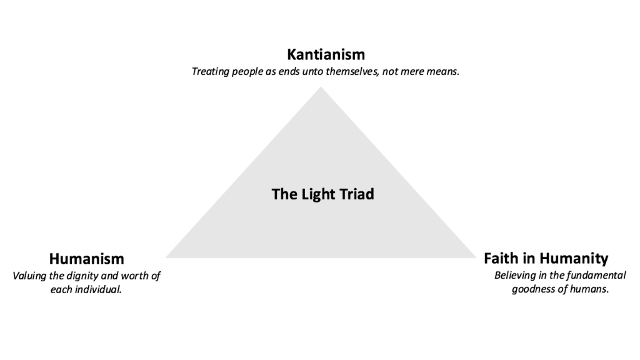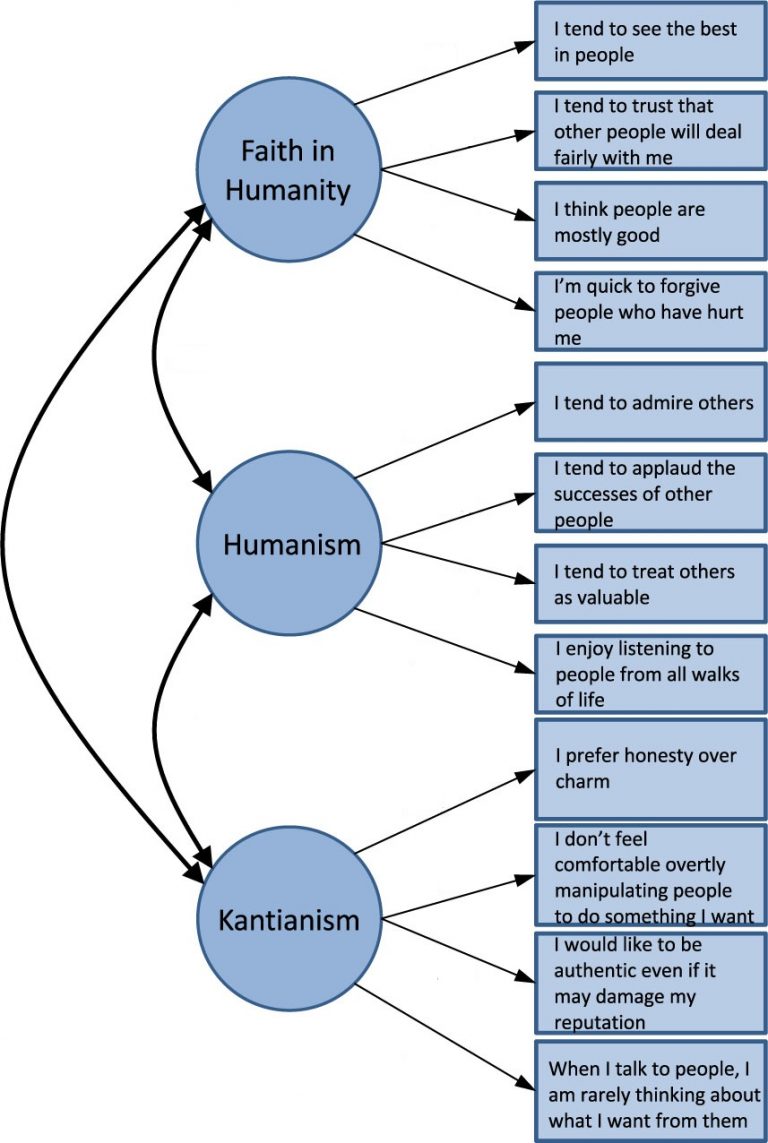
How could the Light Triad help knowledge management?
In a previous RealKM Magazine article, I explored what has come to be known as the “Dark Triad” of antisocial personality traits: narcissism, Machiavellianism, and psychopathy.
Studies have linked Dark Triad traits to higher rates of bullying, counterproductive work behaviours, poor organizational citizenship, and poor job performance. Paradoxically though, research has also linked the Dark Triad to a wide range of career-related benefits. For example, US President candidate Donald Trump is an apparent example of the personal success that can come from Dark Triad traits.
But what about the effects of positive personality traits? In a recent paper1, Scott Barry Kaufman, David Bryce Yaden, Elizabeth Hyde, and Eli Tsukayama alert that while there is a growing literature on the Dark Triad, there has been a lack of integration with the burgeoning research literature on positive traits. To help move the field toward greater integration, they have contrasted the Dark Triad with the “Light Triad”.
The Light Triad is described as a first draft measure of a loving and beneficent orientation toward others (“everyday saints”), and consists of three facets: Kantianism (treating people as ends unto themselves), Humanism (valuing the dignity and worth of each individual), and Faith in Humanity (believing in the fundamental goodness of humans).
The Light Triad traits are measured by the 12-item Light Triad Scale (LTS), as shown in Figure 1.

The Light Triad Scale and knowledge management
There is clear alignment between items in the Light Triad Scale and beneficial behaviours in knowledge management (KM). For example:
- “I tend to trust that other people will deal fairly with me” aligns with the importance of trust in knowledge sharing2
- “I tend to treat others as valuable” aligns with valuing the knowledge of others
- “I enjoy listening to people from all walks of life” aligns with the importance of multi-stakeholder processes in addressing complex issues3,4
- “When I talk to people, I am rarely thinking about what I want from them” aligns with a willingness to share knowledge without an expectation of receiving something in return.
Because of this, a full study that examines the relationship between the Light Triad Scale and beneficial behaviours in knowledge management is highly desirable. From the results of such a study, organisations could promote Light Triad traits as part of their KM strategy, benefiting not only KM, but the wider range of activities of the organisation.
If you’re a KM researcher, please consider carrying out such a study.
Article source: © 2019 Kaufman, Yaden, Hyde, and Tsukayama, CC BY 4.0. As reported in ABC Science.
Header image source: Scott Barry Kaufman, David Yaden, Elizabeth Hyde, and Eli Tsukayama; Scientific American.
References:
- Kaufman, S. B., Yaden, D. B., Hyde, E., & Tsukayama, E. (2019). The Light vs. Dark Triad of Personality: Contrasting Two Very Different Profiles of Human Nature. Frontiers in psychology, 10, 467. ↩
- Bendtsen, K. M., Uekermann, F., & Haerter, J. O. (2016). Expert Game experiment predicts emergence of trust in professional communication networks. Proceedings of the National Academy of Sciences, 113(43), 12099-12104. ↩
- Cummings, S., Regeer, B. J., Ho, W. W., & Zweekhorst, M. B. (2013). Proposing a fifth generation of knowledge management for development: investigating convergence between knowledge management for development and transdisciplinary research. Knowledge Management for Development Journal, 9(2), 10-36. ↩
- Cummings, S., Kiwanuka, S., Gillman, H., & Regeer, B. (2018). The future of knowledge brokering, perspectives from a generational framework of knowledge management for international development. Information Development, https://doi.org/10.1177/0266666918800174 ↩
Also published on Medium.




